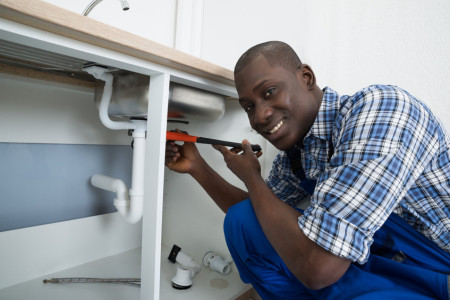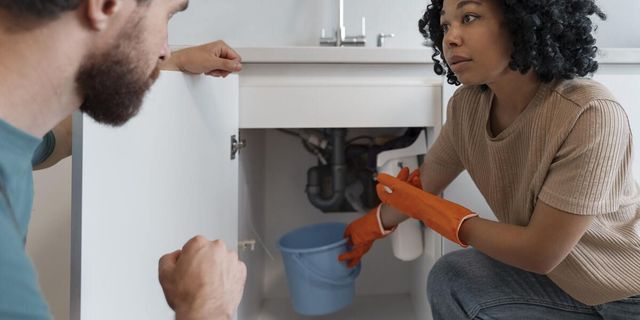The article down below pertaining to What to Do During a Plumbing Emergency is incredibly enlightening. Check it out for yourself and figure out what you think about it.

Pipes emergencies can strike at any time, causing stress and potential damages to your home. Whether it's a ruptured pipeline, a stopped up drain, or a leaking tap, knowing exactly how to manage the circumstance up until a professional plumbing shows up can conserve you from additional issues. This post offers vital emergency situation plumbing ideas to assist you minimize damage and restore control during a pipes dilemma.
Shut off the Water System
The initial step in any plumbing emergency is to shut down the supply of water. For localized issues, such as a leaking tap or commode, switch off the shutoff near the component. When it comes to a significant leak or burst pipe, situate your home's primary water shut-off valve and turn it off immediately. Recognizing the place of these valves beforehand can conserve useful time during an emergency situation.
Address Tiny Leaks with Temporary Solutions
Little leaks can swiftly end up being significant troubles if left untreated. Make use of these momentary repairs up until professional help gets here:
While these repairs aren't permanent, they can help decrease water loss and damage.
Unclog Drains Securely
A stopped up drain can be a frustrating and unpleasant problem. Here's just how to tackle it:
If these techniques do not work, prevent using extreme force, as it might worsen the obstruction.
Manage Overflowing Toilets
An overruning commode can trigger prompt mayhem. Below's what you should do:
Turn off Your Hot Water Heater
In specific emergencies, such as a ruptured pipe, it's important to shut off your hot water heater. This stops getting too hot or damage to the unit when water quits flowing. Switch off the power supply to the water heater (electrical or gas) and let it cool to avoid possible dangers.
Momentarily Quit a Ruptured Pipe
A burst pipeline can result in significant water damages in minutes. To alleviate the issue:
Call a professional plumbing quickly to resolve the trouble permanently.
Deal With Frozen Pipes Thoroughly
In colder climates, frozen pipes are a typical emergency situation. If you believe a frozen pipe:
Prevent Further Damage
Taking quick action to minimize damage can save you time and money in the long run. Here's how:
. Have an Emergency Pipes Set
Prepare a standard pipes emergency situation kit to handle minor issues efficiently. Your set ought to include:
Having these tools available can make a considerable distinction in your ability to manage emergencies.
Know When to Call a Professional.
While quick fixes can assist briefly, specific pipes concerns call for prompt specialist interest. Call a plumbing professional if:.
Without delay speaking to a professional makes sure the issue is settled properly and protects against further problems.
Verdict.
Pipes emergency situations can be overwhelming, however with the right understanding and devices, you can take care of the scenario effectively until assistance shows up. By switching off the water, resolving small leaks, and utilizing momentary solutions, you can decrease damages and keep your home safe. Remember, these suggestions are momentary options; constantly get in touch with a licensed plumber to handle the root cause of the problem. Preparation and quick thinking are your best allies in any type of plumbing emergency.
Expert Tips for Emergency Plumbing Repairs
Plumbing emergencies can be incredibly stressful and inconvenient. Whether it’s a burst pipe, a clogged drain, or a leaky faucet, these common plumbing emergencies need immediate attention to prevent further damage to your home. But before you panic, it’s important to understand the basics of plumbing repairs and the steps you can take to address these emergencies. In this article, we will share some expert tips to help you navigate through these situations and minimize potential water damage.
Identifying Common Plumbing Emergencies
Leaky pipes and faucets Clogged drains and toilets Burst pipes Low water pressure Water heater problems Essential Tools for Plumbing Repairs
Plunger: Useful for unclogging toilets and drains Adjustable wrench: Needed for tightening or loosening nuts and bolts Pipe wrench: Ideal for gripping and turning pipes Tape measure: Necessary for accurate pipe measurements Plumber’s tape: Helps create watertight seals Understanding Emergency Plumbing Services
Emergency plumbing services are designed to provide immediate assistance for unexpected plumbing issues that can cause significant damage to your home, business, or health. These services are typically available 24/7 and are staffed by experienced plumbers who can quickly diagnose and repair a wide range of plumbing problems.
When a plumbing emergency strikes, time is of the essence. Whether it’s a burst pipe flooding your basement or a gas leak posing a serious risk, emergency plumbing services ensure that help is just a phone call away. These professionals are equipped with the tools and expertise to handle any situation, minimizing damage and restoring your plumbing system to proper working order.
What Constitutes a Plumbing Emergency?
Burst pipes or water supply lines: These can cause extensive water damage and need immediate repair to prevent flooding. Gas leaks or suspected gas leaks: Gas leaks are extremely dangerous and require prompt attention to avoid potential explosions or health hazards. Sewer backups or overflows: These can lead to unsanitary conditions and significant property damage. Clogged drains or toilets causing water to overflow: Overflowing water can damage floors, walls, and other structures. Leaks or water damage causing structural damage: Persistent leaks can weaken the structural integrity of your home or business. No hot water or heating: A lack of hot water can be more than an inconvenience, especially in colder months. Common Causes of Plumbing Emergencies
Aging or corroded pipes: Over time, pipes can deteriorate, leading to leaks or bursts. Improperly installed or maintained plumbing fixtures: Faulty installations or lack of maintenance can result in unexpected failures. Tree roots or other debris infiltrating your sewer line: Roots can grow into pipes, causing blockages and backups. Frozen pipes or water supply lines: In colder climates, pipes can freeze and burst, leading to significant water damage. High water pressure or sudden changes in water pressure: Excessive pressure can strain pipes and fixtures, causing them to fail. Natural disasters such as floods or earthquakes: These events can disrupt your plumbing system and cause severe damage. Steps to Minimize Water Damage
Locate the water shut-off valve: Knowing where the valve is can help you quickly cut off the water supply to the affected area. Turn off the water heater: If there’s a risk of water coming into contact with the heating element, make sure to turn off the water heater to avoid potential accidents. Open faucets and drain pipes: By opening faucets and drain pipes, you can relieve pressure and empty any standing water. Collect and contain water: Use towels, buckets, or bins to collect water and prevent it from spreading to other areas of your home. https://leecountyplumbingandwellservice.com/expert-tips-for-emergency-plumbing-repairs/

I'm certainly very enthusiastic about and I really hope you enjoyed reading our blog entry. Liked our write-up? Please share it. Let others check it out. We enjoy your readership.
Book